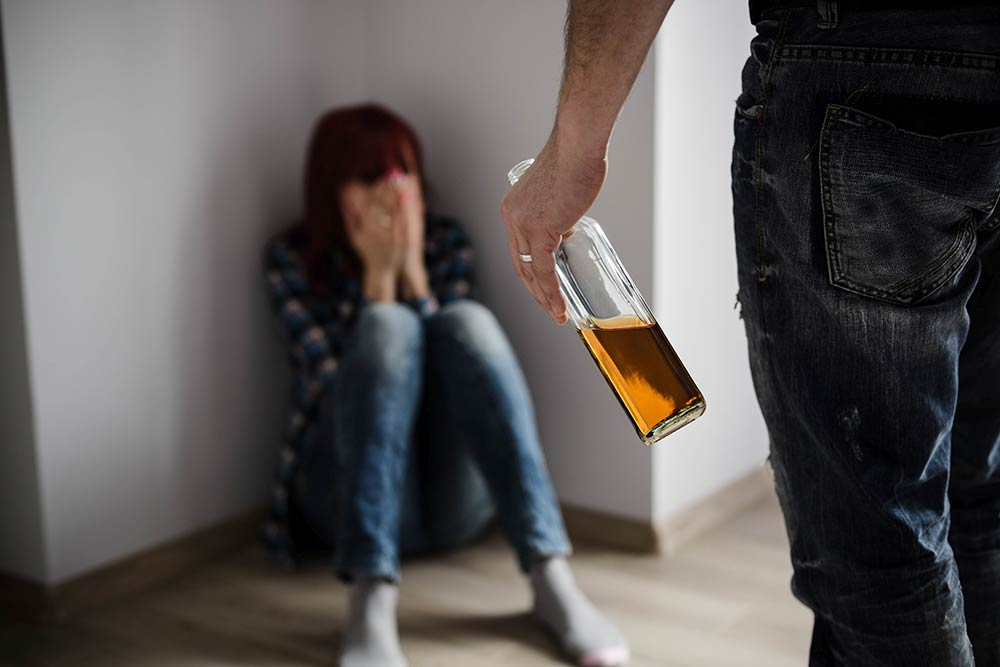Read the latest and greatest from our team
of incredible specialists.

Beach House Recovery Center » Blog » When a Spouse’s Addiction Threatens Your Marriage
Untreated substance use disorders (SUDs) can wreak havoc in relationships. Spouses are among those who suffer the most, and it is not uncommon for SUD-affected marriages to end in divorce. This article offers some general information, advice and resources for when a spouse’s drug or alcohol addiction threatens your marriage.

Untreated alcoholism is linked with higher rates of divorce and, according to the literature, is also a clear predictor of divorce. In one study by University of Michigan researchers, for example, the rate of divorce was significantly higher among those with a lifetime alcohol use disorder; and almost half of the 17,192 people surveyed with past or present alcohol use disorders reported at least one divorce in their lifetime.
Another study by the National Institute on Alcoholism and Alcohol Abuse found that marriages in which only one partner was a heavy drinker (meaning they consumed six or more drinks in one setting and/or drank until intoxication) were more likely to end in divorce.
Not surprisingly, a similar trend—a strong causal link to divorce—pertains to marriages in which drug abuse is occurring. Strikingly, one study cited by the United Nations Office on Drugs and Crime found that illicit drug abuse correlates more strongly with the disintegration of families than with poverty. The explanation given pointed to how substance abuse strains relationships and ultimately renders families dysfunctional.
How, more specifically, does substance abuse strain marital relationships and cause dysfunction that often leads to divorce? A recent article in The Chicago Tribune summarized the many ways in which drug and alcohol problems foster unhealthy interpersonal dynamics within couples and families. These include:
Naturally, then, on the basis of these various dynamics and others, it is understandable why so many SUD-affected marriages end in divorce. It is also understandable how, if your spouse has an untreated SUD, your marriage may also be in trouble. This awareness can be a source of consolation and reassurance that you are not alone in your pain, and that many others have been through similar distress. By recognizing and accepting this reality, you will be taking a healthy first step in the direction of your own recovery, and potentially that of your spouse as well.
Here’s what to do if drugs or alcohol threaten your marriage:
BCT can be conducted in various formats, including group behavioral couples therapy (GBCT), in which a therapist may treat several couples together over the course of nine to 12 weeks. In BCT, couples can also undertake something known as the Daily Recovery Contract, as a way to rebuild trust, instill accountability and prevent relapse via old interpersonal triggers.
Whether you’re researching for yourself or a loved one, Beach House can help. We understand that this is a serious time in your life and that the treatment center you choose matters. We want you to feel comfortable and empowered to make the right decision for yourself, a friend, or a family member. This is why a counselor is waiting and available to answer your questions and help put your mind at ease regarding the next steps. Many of the staff at Beach House have walked in your shoes. If you feel you’re ready or want more information about how to help a loved one, we can help today. You can also learn why we are voted the #1 rehab for addiction treatment in Florida.
We accept most major insurance plans and can verify your benefits quickly and confidentially.
We’re committed to helping you access the care you need, our admissions counselors can guide you through your coverage options and available resources.





"*" indicates required fields